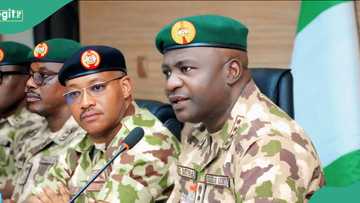Full List of Military Coups in Nigeria and Names of Persons Behind Them
- Nigeria’s political history is steeped in military coups that have reshaped its leadership and tested its democratic resilience
- From the bloody upheaval of 1966 to the rumoured 2025 plot, each coup reflects deep-rooted tensions and shifting power dynamics
- This report revisits the most pivotal coups in Nigeria’s history, offering context, consequences
Nigeria’s military coups have shaped its political trajectory for decades. The recent 2025 coup rumours, though debunked, highlight the enduring relevance of this history.
Nigeria’s post-independence history has been punctuated by a series of military coups that have profoundly influenced its political, economic, and social development.

Source: Twitter
From the first coup in 1966 to the most recent alleged plot in 2025, these events have left indelible marks on the nation’s democratic journey.
The Defence Headquarters and the federal government have firmly denied the existence of a coup plot in October 2025, despite widespread speculation and the reported detention of several military officers. The government emphasized that the reports were “fake” and aimed at inciting public tension.
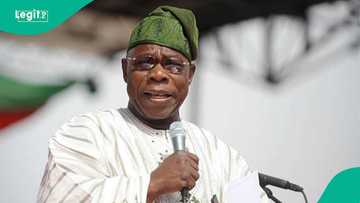
Read also
How Nigeria foiled alleged plot to kill Obasanjo by shooting down his helicopter with missile in 2004
Nonetheless, the rumoured coup serves as a timely reminder of Nigeria’s turbulent past and the fragility of its democratic institutions.
Here is a detailed list of the military coups that have rocked Nigeria:
1. The January 1966 coup
Nigeria’s first military coup occurred on January 15, 1966, led by a group of young army officers, predominantly of Southeastern origin, including Major Kaduna Nzeogwu and Major Emmanuel Ifeajuna. The coup was motivated by frustration over corruption, regional tensions, and political instability.
The coup resulted in the assassination of key political figures such as Prime Minister Abubakar Tafawa Balewa, Northern Premier Ahmadu Bello, and Western Premier Ladoke Akintola. Although the coup failed to establish a lasting government, it marked the beginning of military intervention in Nigerian politics.
2. The July 1966 counter-coup
Just six months later, a counter-coup was staged by northern officers who felt marginalized by the January coup. Major General Johnson Aguiyi-Ironsi, who had assumed power, was assassinated, and Lieutenant Colonel Yakubu Gowon emerged as Head of State.
This coup deepened ethnic divisions and set the stage for the Nigerian Civil War. It also entrenched the military’s role in governance, with Gowon ruling until 1975.
3. The 1975 coup: Gowon’s ouster
On July 30, 1975, General Gowon was overthrown in a bloodless palace coup while attending an OAU summit in Kampala. Brigadier Murtala Muhammed, known for his charisma and reformist zeal, took over as Head of State.
Muhammed’s short tenure was marked by bold reforms, including the restructuring of the civil service and plans for a return to civilian rule. His leadership style earned public admiration but also made him a target.
4. The 1976 coup: Muhammed’s assassination
On February 13, 1976, Lt. Colonel Buka Suka Dimka led a failed coup that resulted in the assassination of General Murtala Muhammed. The coup was quickly suppressed and Lt. General Olusegun Obasanjo assumed leadership.
Obasanjo continued Muhammed’s transition plan, eventually handing over power to a civilian government in 1979. The coup depicted the volatility of military rule and the risks faced by reformist leaders.
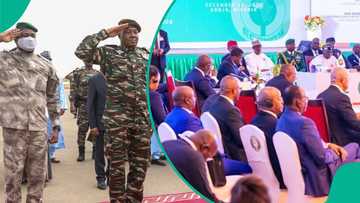
Read also
Overthrowing government: Full list of African countries that fell to military rule after coup plot
5. The 1983 coup: Buhari’s rise to power
On December 31, 1983, the military overthrew President Shehu Shagari’s civilian government, citing corruption and economic mismanagement. Major General Muhammadu Buhari was installed as Head of State.
Buhari’s regime was characterized by strict discipline, anti-corruption campaigns, and human rights violations. His government was unpopular among civil society and was eventually toppled in another coup.
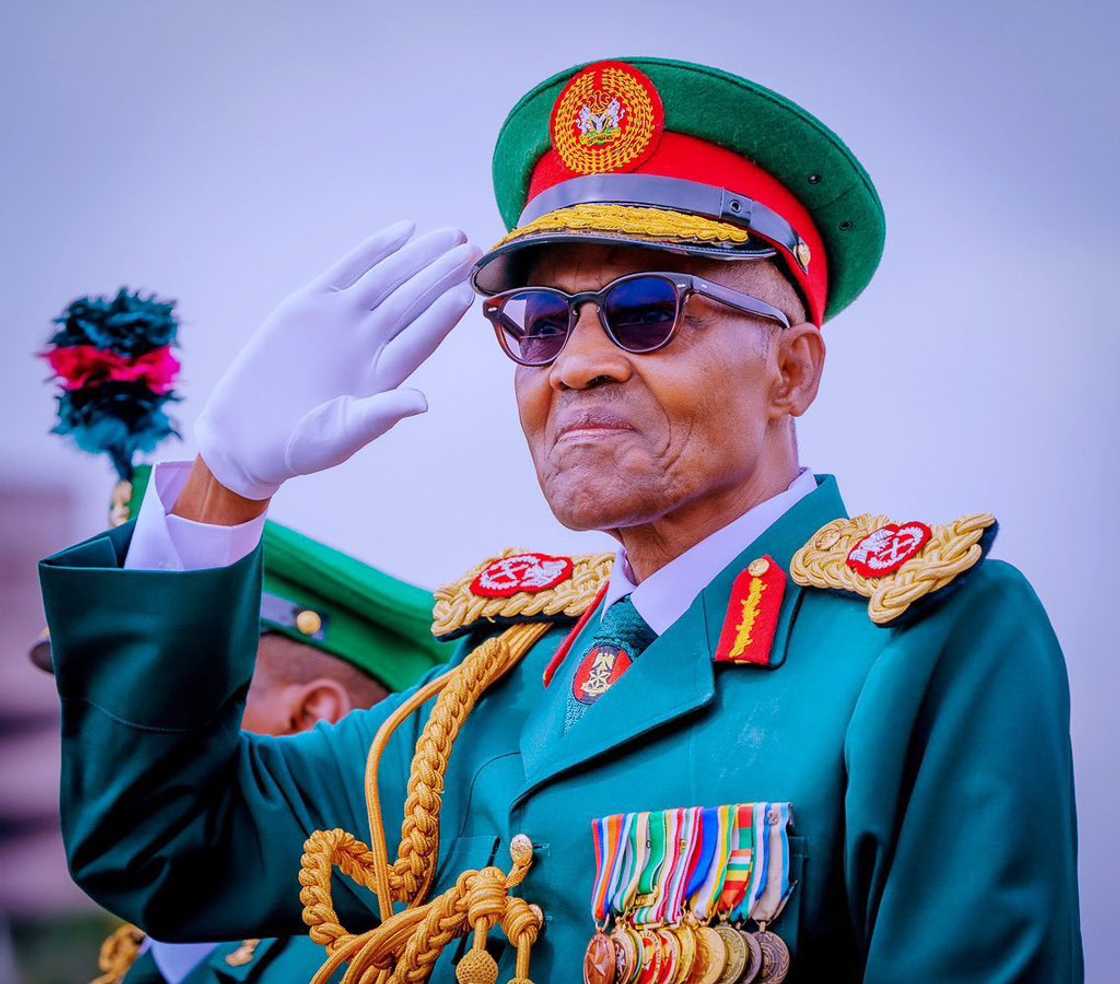
Source: Twitter
6. The August 1985 coup: Babangida takes over
Major General Ibrahim Babangida, then Chief of Army Staff, led a palace coup that ousted Buhari on August 27, 1985. Babangida promised political reform and economic liberalization.
His administration introduced the Structural Adjustment Programme (SAP), which had mixed results, liberalizing the economy but also deepening poverty. Babangida’s rule was marked by political manipulation and the annulment of the 1993 elections.
7. The alleged Vatsa coup of December 1985
In late 1985, the Babangida regime uncovered an alleged coup plot led by Major General Mamman Jiya Vatsa. Over 100 officers were arrested, and several, including Vatsa, were executed after secret trials.
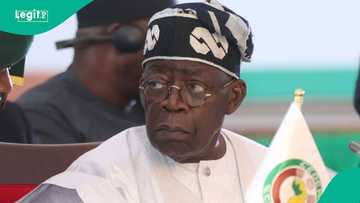
Read also
‘Why coup plot will be dismantled in 48 hours,' ex-APC presidential aspirant speaks amid Tinubu's presidency
The crackdown was controversial with critics questioning the fairness of the trials and the authenticity of the plot. It reinforced Babangida’s grip on power and instilled fear within the military ranks.
8. The 1990 coup: Orkar’s failed attempt
On April 22, 1990, Major Gideon Orkar led a violent coup attempt against Babangida. The plotters seized parts of Lagos and broadcast a speech announcing the excision of five northern states from Nigeria.
The coup was swiftly crushed, and Orkar was executed. The incident exposed deep regional and ethnic tensions and highlighted the growing dissatisfaction with Babangida’s rule.
9. The 1993 coup: Abacha’s rise to power
Following the annulment of the June 12, 1993 elections, Babangida stepped down and appointed Ernest Shonekan as interim president. On November 17, 1993, General Sani Abacha seized power in a palace coup.
Abacha’s regime was considered one of the most repressive in Nigeria’s history, marked by reported human rights abuses, political assassinations, and economic decline. His sudden death in 1998 ended the era of military rule.
Legacy and reflection
The legacy of military coups in Nigeria continues to shape its democratic institutions. Researchers say that the economic policies of the 1980s, particularly under military rule, led to debt crises and widespread poverty.List of African nations under military rule
Legit.ng earlier reported that Africa and its history of coups have been like a nut and its shell, and are still prevalent even in the 21st century. The western sub-region holds the record for the most military interventions since the beginning of independence in the region, due to struggles with democracy.
Notably, the civilian rule on the continent has been laced with instances of corruption, nepotism, religious bigotry, and ethnocentrism, adding a layer of complexity. Africa continues to suffer in keeping up with the Western World in the practice of democracy, often with serious consequences.
Proofreading by Bruce Douglas, copy editor at Legit.ng.
Source: Legit.ng


